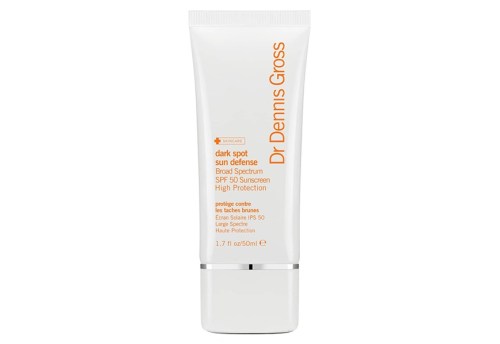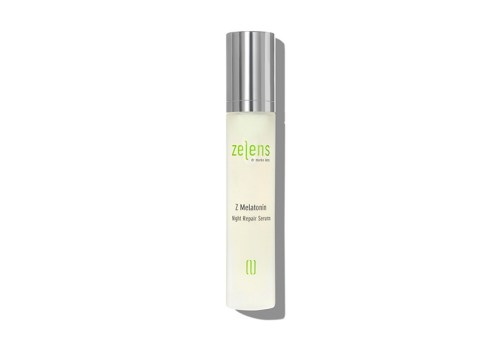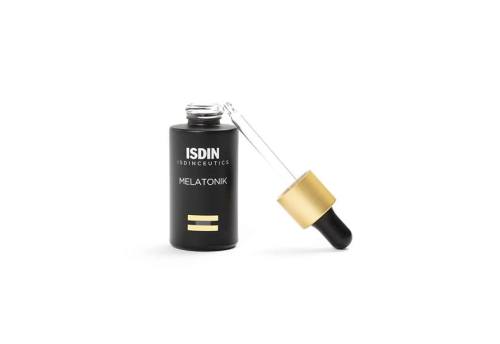This Snoozy Supplement You Take Before Bed Does Totally Awesome Things for Your Skin
Melatonin has long been the go-to for sleepless nights of tossing and turning. In fact, there's a bottle next to my bed, and we've had our fair share of midnight (and, okay 9 p.m.) rendezvous. And now, you can expect to start seeing a whole lot more of the snooze-inducing ingredient somewhere other than on your bedside table. Namely, in your skin-care cabinet.
The conversation around topical melatonin for skin has been buzzing amongst dermatologists for a while now, and lately it's started to hit the mainstream by popping up in products. And, if preliminary research is to be believed, it may be just as good for your skin as it is for your REM cycle. "Melatonin is a hormone produced in the skin as well as in the body," explains Austin-based dermatologist Ted Lain, MD, noting that it tends to be mostly concentrated at night. "Melatonin can act as an antioxidant helping prevent sun damage and protecting from the effects of pollution on the DNA in your skin cells as well as protecting the collagen in the second layer of your skin."
As an antioxidant, it can help neutralize free radicals and promote healthy collagen production to help stave off wrinkles. And, no—it won't make you sleepy when you apply it topically. "For skin cells, melatonin is able to slow down and even reverse UV-induced damage, protecting cellular DNA from free-radicals," says Marko Lens, MD founder of Zelens, which recently launched their own melatonin serum. "UV rays are a large cause of wrinkles, fine lines, dark spots—all damage that comes from the sun—and melatonin is able to help counteract those visible damages."
That said, there's a bit of disagreement in the skin-care community about just how great melatonin really is for your skin, as there are some potential side effects that cause concern. Dr. Lain warns that there could be potential for pigmentation and, according to Connecticut-based dermatologist Mona Gohara, MD, this occurs because the ingredient can activate melanocytes, which makes sun spots worse.
{{post.sponsorText}}
While some dermatologists (including Dr. Lain) are hesitant to recommend melatonin because of lack of substantive research, a 2018 study found that "the evidence suggests that melatonin deserves consideration for topical use as an anti-aging and skin protective agent. It is shown to be both safe and effective when topically applied."
While the concept of using melatonin in skin care is still a very, very new one, there are a few products on the market that will let you test it out for yourself. If you do plan to integrate the ingredient into your routine, be sure to do it at night since that's when the melatonin levels in your body are at their highest, which will help make the products work most effectively. So, really, you could keep this type of melatonin on your bedside table, too for some seriously skin-friendly snoozin'.
Some other buzzy skin-care ingredients we're pumped about right now: Bakuchiol, Retinol, and as always, Vitamin C.
Loading More Posts...


